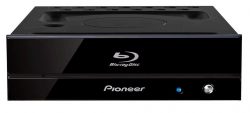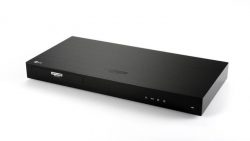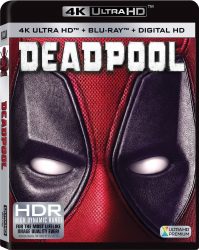Welcome to the Year of the Rooster. In traditional Chinese custom, those born in the year of the rooster (1921, 1933, 1945, 1957, 1969, 1981, 1993, 2005 – although those born in early January/February might have to double check to see which side of the lunar year they fall under) should always carry with them something red (red undies will do) to ward off bad luck for the year, so make sure you take precautions!
In terms of news, it’s somewhat quiet, but there are two stories on the coming and goings of technology that are unmistakably related. So let’s get started!
![]()
First the going. Those still getting good use out of their 3D TV will have to extra careful to protect their investment, because pretty soon, it’s going to be really hard to buy a decent 3D set. Sony and LG this week announced that none of their new 2017 range of TVs will include 3D support. This move follows Samsung and Philips, both having ditched 3D in 2016, and raft of other CE companies like Sharp, TCL and Hisense that failed to announce any new TVs featuring 3D support at CES.

3D, at least for the home, going the way of the dodo as last two holdouts announce the end of 3D support for their TVs
Those following our weekly Blu-ray sales analysis will also have seen a familiar pattern, that while studios are still doing 3D releases, the number of people buying them have steadily decreased.
The irony of this, in particular the LG announcement, is the company has finally perfected 3D technology for the home using their passive technology. But the fact remains that not all movies benefit greatly from 3D, that people just aren’t that interested in recreating the 3D experience at home, or at least not enough people to justify the cost of including the tech in the latest TV models. And some people like me can’t even watch 3D for extended periods without wanting to throw up.
That cost is being transferred to other technologies that, according to the NPD and according to our own Blu-ray sales stats, are quickly gaining popularity with consumers. Of course, I’m referring to Ultra HD Blu-ray and all the associated acronyms. For the week ending January 14th 2017, eight of the top 10 selling Blu-ray titles all had Ultra HD Blu-ray editions, but only four had 3D editions. This could be because more movies, if not most movies, benefit in some way from having an 4K transfer, than compared to 3D.
So what to do if you’re a 3D fan? The first thing you should do is to make sure you take good care of your current 3D TV, because it might be hard in the future to secure yourself a good quality 3D TV. Also don’t fret too much about studios not releasing 3D movies – Disney just recently released the 3D edition of The Force Awakens, and it sold enough copies to probably justify other re-releases like this in the future (plus there’s the whole series of new Avatar movies coming).
Now we go to the other story, the coming. With Ultra HD Blu-ray looking more and more like the natural successor to the Blu-ray format, one thing has been noticeably missing – where’s the PC support? I know PCs aren’t what they used to be, but to be a year into a format without even a glimpse of an Ultra HD Blu-ray optical drive, seems quite odd considering how Blu-ray and DVD before it (and this site, for that matter) got started.
But that will soon change. Pioneer will finally bring out a pair of Ultra HD Blu-ray capable optical drives (the BDR-S11J-BK & BDR-S11J-X). Even better, Cyberlink has teamed up with Pioneer to include a special modified (and unavailable to buy at retail) version of PowerDVD that has received Ultra HD Blu-ray certification and will play all the latest discs.
Better late than never, I suppose.
Of course, having a drive and player software is only the beginning of the requirements, thanks to the annoyance of DRM, and the brilliance of HDR. You’ll need a Kaby Lake CPU and a GPU that supports HDMI 2.0a and HDCP 2.2. And if you want HDR, you’ll need a monitor that can do it justice as well. Not too many people are buying high spec’d PCs these days, and so I don’t expect Pioneer and Cyberlink to do roaring business from these drives/software, at least not yet. I’m just grateful they haven’t forgotten us old PC heads, many of whom are itching to upgrade their PCs to attain full Ultra HD Blu-ray support status. I know I am!
======
That’s all we have for this WNR. See you next week!











